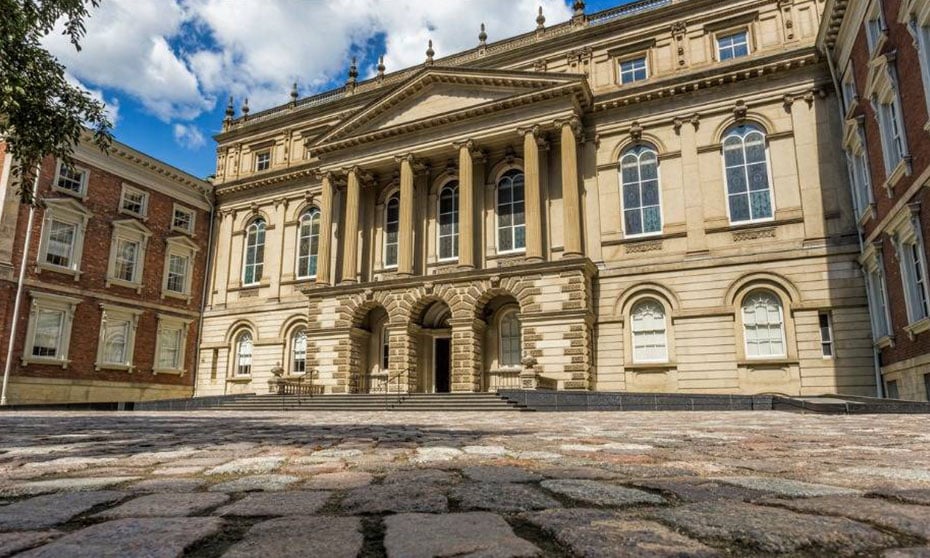
An independent group of advisors on diversity issues may be cut from the law society, based on a StopSOP proposal

Less than a year after a slate of benchers was elected to strike the statement of principles, another equity and diversity initiative may be on the chopping block at the Law Society of Ontario.
A group of benchers — who serve as a board of directors to the body that regulates lawyers — said last year that the statement of principles, which required lawyers to profess support for diversity and inclusion, was compelled speech. The group, called StopSOP, makes up about half of the Convocation board meeting members.
Now, an independent group of advisors on diversity issues may also be cut from the law society, based on a StopSOP proposal, which also asks benchers to censure its own organizations from re-publishing damaging allegations against the law society on Twitter.
A formal notice of the motion proposes that Convocation should “study the advisability of creating and maintaining a standing group of unelected advisors such as the EAG” at its next meeting.
The Equity Advisory Group consists of representatives from Arab Canadian Lawyers’ Association, L'Association des juristes d'expression française de l'Ontario, ARCH Disability Law Centre, Canadian Association of Black Lawyers, Canadian Association of Somali Lawyers, Canadian Hispanic Bar Association, Canadian Muslim Lawyers Association, Federation of Asian Canadian Lawyers, Law Students’ Society of Ontario, Ontario Paralegal Association, Roundtable of Diversity Associations, and South Asian Bar Association. The goal of the group, according to the LSO website, is to help benchers on Convocation’s Equity and Indigenous Affairs Committee develop policies to promote equity and diversity in the legal profession.
In contrast to the statement of principles — which StopSOP critics lambasted as speech controlled by the regulator — the new StopSOP motions proposes limiting who may speak at LSO events and what is said on social media.
The motion says that at a recent law society event, a Talking Circle, EAG representatives were permitted to speak while several non-Committee member Benchers were “not permitted to speak.” The motion says that the meeting’s structure denied benchers their rights and privileges to fully participate and discharge their duties.
“While EAG has a limited mandate to assist in the governance of the LSO, neither it nor its representatives take precedence over the statutory mandate of benchers,” said the motion.
The motion directs the law society’s committee on diversity to “recognize the right of all benchers to attend, to participate and to speak at EIAC committee meetings and other EIAC events” and says the Equity and Indigenous Affairs Committee “shall conduct its meetings without the regular attendance and participation of unelected persons.”
Atrisha Lewis, a senior associate at McCarthy Tétrault LLP and a pro-SOP bencher, said on social media that the motion is equivalent to removing participation of equity partners at LSO’s Equity and Indigenous Affairs Committee.
Earlier this year, Law Times reported that the leader of the Equity Advisory Group planned to file a complaint about a bencher.
A separate motion specifically asks benchers for “censure of the EAG representative for his serious and highly damaging Twitter allegation.”
“Redress for the conduct . . . . and the proper safeguarding of bencher privileges against any possible further such conduct, are required in order to restore the rights and role and privileges of Convocation and LSO committees so that they may continue to be fora in which open discussion may occur without fear that injurious social media campaigns will be initiated and prolonged by participants and others within the LSO,” the motion said.
The new proposal to unravel the EAG group comes amid an ongoing change: the conversation among StopSOP benchers has shifted away from promoting free speech and toward criticisms of prevalence of systemic racism in the legal profession, say critics such as Joshua Sealy-Harrington.
But Murray Klippenstein, a StopSOP bencher, argues that the LSO’s existing approach to equity and diversity is based on research that is “methodologically invalid, seriously misleading, and driven by a particular political ideology, and was and is an unacceptable basis for serious policy-making.”
“The Law Society has spent a very large amount of time and effort, and apparently a very large amount of funds, on an attempt to address challenges faced by lawyers and paralegals from visible or ethnic minorities,” wrote Klippenstein in a lengthy salvo earlier this year. “In this writer’s opinion, the Law Society could have ended up with a thoughtful and constructive result but did not.”
Diversity and inclusion groups are calling for more time to consult on the issue.
“We are deeply disappointed by the LSO motion,” said the Women's Legal Education and Action Fund. The motion is “entirely dismissive of the role of equality-seeking voices in advancing the LSO’s duty to protect the public interest,” said LEAF’s tweet.
“We urge the LSO to provide ample opportunity for feedback before deciding on such a critical motion on February 27.”
The Roundtable of Diversity Associations also took to social media to criticize the proposed elimination of EAG.
“We are troubled by the motions being put forward on very short notice . . . . to eliminate equity partners’ voices from the discussion. The dismantling of equity is not free speech or democracy, it is regression,” the tweet said.